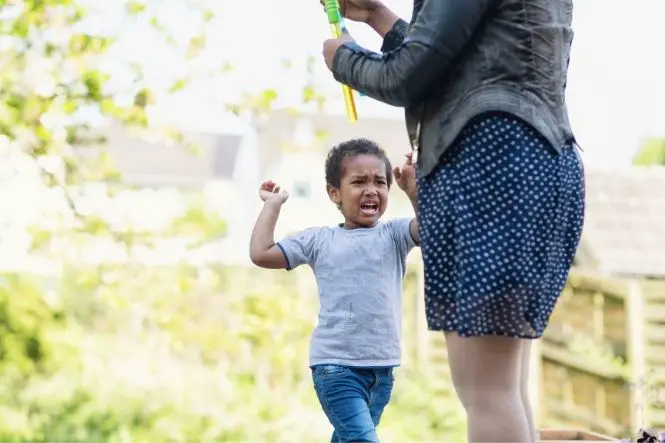Incontinence, or the loss of urinary control, can be highly embarrassing for children whether it happens in public or in private, during the day or at night. The good news is that incontinence tends to reduce and disappear over time, but that is often cold comfort to children who want to stop experiencing it right this moment. Knowing the facts about children and incontinence, what causes this embarrassing condition and how to address it both during the day and at night should help you get your child through it.
Table of Contents
Children and Incontinence: The Facts
Urinary incontinence is fairly common in children under the age of five years. Up until about five years children’s bodies are still learning to listen to themselves, so during and even after potty training there are bound to be accidents when a child’s bladder just gets too full and (s)he doesn’t make it to the toilet in time. At about five years of age, around 10% of children still experience accidents related to urination though this drops to about 5% of children by age 10 or so. Boys are twice as likely to experience bouts of urinary incontinence as girls.
Causes of Incontinence In Children
There may be many causes of incontinence in children. Overproduction of urine and an inability to recognise the “feel” of a full bladder are two basic causes of incontinence. Infrequent urination, small bladder capacity, abnormalities and/or problems in the urinary structures, an over consumption of caffeinated drinks or other diuretics and genetics may all cause urinary incontinence as well. On an emotional level rather than a physical level, fear and anxiety may also cause urinary incontinence in children.
Addressing Incontinence During the Day
There are many things that parents and children can do to try to address and treat urinary incontinence during the day. Sometimes all you can do is wait to see if bladder capacity will increase, but you can also try to limit the number of caffeinated drinks a child consumes during the day, to limit drinks when the child is not near a toilet, to have the child go to the toilet at set intervals throughout the day, and to ask the child if they need to use the toilet regularly so that (s)he starts to think about how the bladder feels. If none of these steps work then seeing a GP may be important to find out if there is an underlying physical condition causing incontinence during the day.
Addressing Incontinence at Night
Changes to your child’s nighttime routines may help alleviate any bedwetting (s)he experiences at night. Limiting the amount of liquid (s)he consumes in the evening, making sure (s)he urinates before going to bed and waking him or her about two hours after going to sleep should all help void the bladder before a longer night of sleep. Dressing children in two piece pyjamas so that it is easier for them to undress for the toilet, putting a mattress protector and/or water-resistant sheet on the bed and setting up a night light so that children won’t be afraid to get out of bed to get to the toilet may also help them overcome bedwetting as well. If none of these steps help, don’t be afraid to contact your GP to ask for more help.
Urinary incontinence can be embarrassing for children, but it is more common than many might think. Understanding the facts of urinary incontinence, common causes and ways of addressing it both during the day and at night should help parents help their children overcome incontinence.


